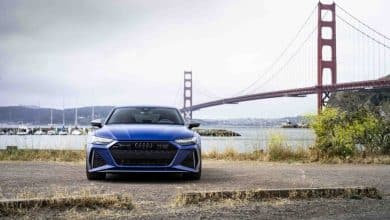
The autonomy of electric vehicles is an important element in the purchasing decision of motorists. Moreover, according to a study carried out by KPMG, 14% of purchasers of internal combustion engine vehicles choose to keep their gasoline-powered car because autonomy and the network of charging infrastructures generate too much anxiety.
Tesla arrived on the market with a reassuring recipe for people in search of autonomy. The company is still currently renowned for offering vehicles with the best data. However, a news released by Reuters, indicates that the manufacturer is possibly rigging the numbers upwards. The newspaper specifies that Tesla would have even set up a “diversion team” in Las Vegas to cancel service appointments for customers who complain of a problem related to the autonomy of their vehicle.

Thousands of complaints
The story told by Reuters begins with the description of a lived event. A man in the United States hit the road with his family in a Tesla Model 3. Upon turning the vehicle on, he realized that his vehicle was losing range too quickly and he would not be able to travel the desired route. The individual made an appointment with a Tesla service center to have everything checked. A message was sent to him telling him that a remote scan confirmed that everything was fine with his Model 3, and that the service was cancelled.
Reuters reports that the individual was caught up in Tesla’s scheme to effectively block him from accessing the service. According to the information gathered, Tesla employees have been instructed to compel any customer who complains of poor range to have their vehicle repaired.
always according to Reuters, the electric car maker has reportedly set up a special team to help service centers flooded with appointments from owners who expected better performance from their vehicle. According to the testimonies recovered by the newspaper, the estimates announced by the company and the projections displayed by the autonomy meters of the cars do not agree.

A long-lasting situation
The newspaper also had information from a person familiar with software for reading information in dashboards. This person states that this exaggeration of the distance data dates from several years ago. Tesla rigged its estimating software for marketing purposes. The source explains that the calculations used to indicate range would expose drivers to “pink” forecasts to improve vehicle performance figures.
Once the battery dropped below 50% of its maximum charge, the algorithm would present motorists with more realistic projections of the remaining distance. To prevent drivers from breaking down, the brand’s electric cars have been designed with a safe range, which allows about 24 additional kilometers even after the dashboard display showed a still empty battery, according to The source.
At the time, Tesla only sold 2 electric vehicles, the Model S and the Roadster. Today, with the addition of new products, the source was unable to confirm to Reuters if the system always worked this way.

A chase
While it’s impossible to confirm that the brand’s vehicles always maximize true range, several drivers and analysts have reported that the cars don’t appear to display actual remaining distance. Tesla was also ordered at the beginning of 2023 to pay a fine to South Korean regulators. They explain that they have proven that the cars only deliver half of their expected range in cold weather, which is not legal in the country. Another study from South Korea recently found that three Tesla models were on average 26% below their advertised range.
According to the company, Tesla has always designed range meters in “aggressive” rather than conservative mode. The company states that “This is how Tesla took a different path from other automakers.”
Speaking of other manufacturers, the electric vehicle analysis company Recurrent, based in Seattle, has tested several EVs. According to the firm, the Ford Mustang Mach-E, Chevrolet Bolt EV and Hyundai Kona EV all showed more accurate range data. The Kona EV even underestimated its distances.
It is therefore not possible, at the time of this writing, to know if Tesla is still rigging its meters, but the investigation carried out by Reuters nevertheless seems to show that the company is very optimistic with the autonomy of its vehicles.












